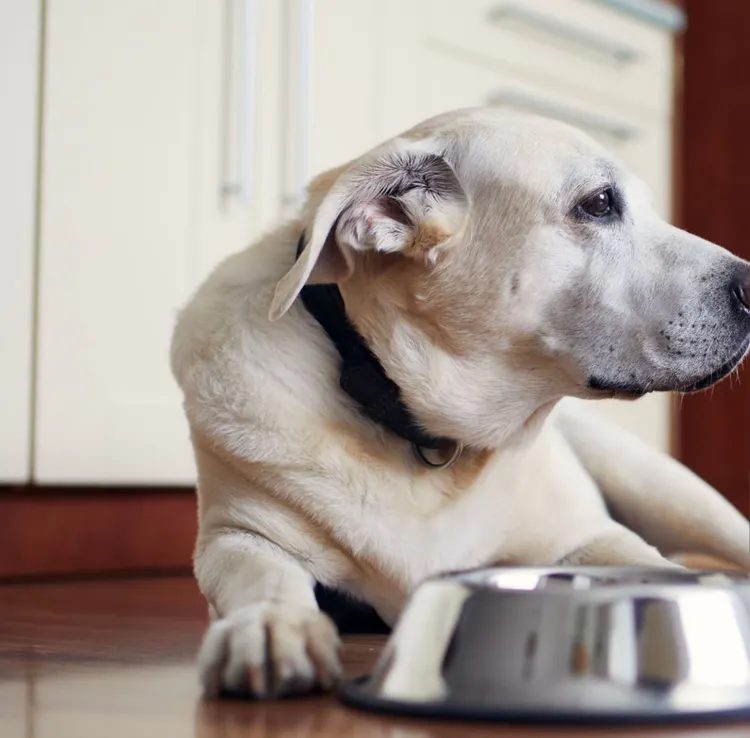Seeing your senior dog go through a seizure can be a distressing experience, but understanding the causes, symptoms, and eco-friendly ways to manage the condition can help provide your dog with the support they need. This guide explores why seizures occur in senior dogs, how to recognize them, and sustainable practices that can improve your pet’s comfort and well-being during these episodes.
What Causes Seizures in Senior Dogs?
As dogs age, they become more vulnerable to health conditions that may trigger seizures. Here are some of the most common causes of seizures in senior dogs:
- Brain Tumors: Brain tumors, including both benign and malignant forms, are a leading cause of seizures in older dogs. These growths can increase pressure on the brain, leading to neurological symptoms.
- Liver Disease or Kidney Failure: When the liver or kidneys aren’t functioning well, toxins can build up in the body, including in the bloodstream. This can interfere with brain function and lead to seizures, particularly in senior dogs who may already have reduced organ function.
- Low Blood Sugar (Hypoglycemia): Some older dogs, especially those with underlying health issues, may experience drops in blood sugar that result in seizures. Conditions like diabetes can increase this risk, as can prolonged fasting or excessive exercise.
- Toxins in the Environment: Certain common household items and outdoor toxins, such as certain plants, insecticides, and antifreeze, can be dangerous if ingested. Older dogs with weakened liver and kidney functions are even more susceptible to these toxins, which can result in seizures.
- Canine Epilepsy: While epilepsy often starts in younger dogs, senior dogs may also experience idiopathic seizures with no identifiable cause. However, age-specific factors, like metabolic disorders or cognitive decline, may increase seizure frequency.
Recognizing the Symptoms of a Seizure in Older Dogs
Understanding the phases of a seizure can help you stay calm and respond appropriately.
- Pre-Ictal Phase: Dogs may become anxious, restless, or clingy before a seizure. They may appear dazed, confused, or display odd behaviors such as whining or pacing.
- Ictal Phase: This is the seizure itself, which can vary from mild tremors to full convulsions. Symptoms may include:
- Uncontrollable shaking or paddling movements
- Drooling
- Loss of consciousness or responsiveness
- Post-Ictal Phase: Following a seizure, dogs often appear disoriented, tired, or clumsy. They may stumble or appear weak and may require a period of rest to fully recover.
What to Do If Your Senior Dog Has a Seizure
Knowing how to respond when your dog has a seizure can ensure their safety and help them recover more comfortably.
- Stay Calm: Your calmness can benefit your dog, who may already be feeling frightened or stressed.
- Remove Hazards: Move sharp or potentially harmful objects out of the way. Avoid moving your dog unless they are in immediate danger, as they may accidentally injure you during the seizure.
- Avoid Restraint: Refrain from holding or restraining your dog, as this may lead to injury. Instead, create a safe, open space around them.
- Monitor the Duration and Frequency: If the seizure lasts more than five minutes or if seizures happen back-to-back, this is a medical emergency. Contact your vet immediately if these occur.
Holistic and Eco-Friendly Management of Seizures
An eco-friendly approach to managing senior dog seizures focuses on natural, sustainable, and holistic practices that support your dog’s health while being mindful of the environment.

Nutrition
Proper nutrition can help support brain health and reduce seizure frequency. Here are some dietary tips:
- Antioxidant-Rich Diet: Antioxidants can help combat oxidative stress in the brain, which can be a contributing factor to seizures. Look for dog food rich in blueberries, leafy greens, and other antioxidant-rich ingredients.
- Omega-3 Supplements: Omega-3 fatty acids from sources like fish oil or flaxseed are known to support brain health. Many eco-conscious pet supplement brands offer sustainably sourced options.
Natural Calming Aids
Consider using natural aids that promote calmness, which can help minimize stress-related seizures.
- CBD Oil: CBD oil is becoming increasingly popular for its potential calming effects. If your veterinarian approves it, look for eco-friendly brands that offer organic, pesticide-free CBD oil.
- Eco-Friendly Pheromone Diffusers: Pheromone diffusers mimic natural calming scents. Choosing brands with eco-conscious packaging or biodegradable refill containers reduces your environmental impact.
Reduce Environmental Toxins
Creating a low-toxin environment can be beneficial for dogs prone to seizures.
- Natural Cleaning Products: Harsh chemicals in cleaning agents may trigger seizures. Switch to pet-safe, non-toxic, and eco-friendly cleaners to minimize exposure.
- Chemical-Free Yard Care: Avoid chemical pesticides and fertilizers in your yard, opting for organic or natural alternatives. This reduces potential toxin exposure, which can help lower seizure risk.
Regular Vet Check-ups
Routine blood work and check-ups are essential for senior dogs with seizure tendencies. Regular monitoring helps your vet adjust medications, track health changes, and catch any underlying issues early.
When to See the Vet
Certain situations warrant immediate veterinary care:
- Seizure Lasting Over 5 Minutes: A seizure longer than five minutes may indicate a severe health issue.
- Multiple Seizures in a Row: Known as “cluster seizures,” multiple seizures within a short period require emergency veterinary care.
- Changes in Symptoms: If your dog’s seizures become more frequent, severe, or are accompanied by other symptoms (e.g., vomiting, lethargy, balance issues), consult your vet.
Diagnostic tools may include blood tests, urinalysis, and MRIs to help identify the underlying cause.
Treatment Options for Senior Dogs with Seizures
Anti-Seizure Medications
Veterinarians may prescribe medications to manage seizures in senior dogs, such as:
- Phenobarbital: A commonly prescribed anti-seizure medication.
- Potassium Bromide: Often used as an alternative for dogs who don’t tolerate phenobarbital well.
Natural Supplements
Supplements can be helpful when used alongside prescribed treatments:
- Valerian Root: Known for its calming effects, valerian root is used in some natural pet supplements. Always consult your vet before adding it to your dog’s regimen.
Environmental Adjustments
Making your home safe and accessible for a senior dog prone to seizures is essential.
- Non-Slip Flooring: Use non-slip mats or rugs to prevent falls, especially in areas where your dog spends the most time.
- Ramps for Accessibility: Ramps help prevent injuries by allowing your senior dog to avoid stairs and other risky obstacles.

Conclusion
Seizures in senior dogs can be alarming, but they are manageable with the right care, support, and eco-friendly adjustments. With sustainable practices, you can create a safe, calming environment that minimizes triggers and promotes your pet’s well-being. Regular vet check-ups, a supportive diet, and a low-toxin home all contribute to keeping your dog safe and comfortable. By taking a holistic and eco-conscious approach, you’re not only enhancing your dog’s quality of life but also contributing positively to the world they live in.



